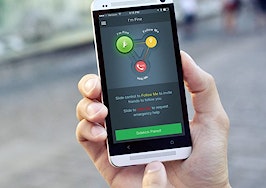- Clearly, nothing more than cost had become the most serious contributor to the industry's excessive agent dropout rates.
- Hulu, Netflix, gaming sites, magazines and more all publish information online. MLSs publish information online -- what's the difference?
- In effect, we were taking what was a free MLS feed and reselling that access to licensed agents at $9.95 a month.
You don’t have to talk to many agents before you hear the familiar refrain: “I can’t do this full time.” Sure enough, the industry itself confirms that a significant portion of today’s licensees are part-time agents.
In 2008, the least expensive monthly fee for a sales agent in Atlanta to have brokerage affiliation was $110. Throw on board dues and, in some cases, franchise fees, and, at best, an agent was looking at $150 a month for something they might not use.
Real estate as an expensive hobby
Real estate becomes a horribly expensive hobby at that point. Clearly, nothing more than cost had become the most serious contributor to the industry’s excessive agent dropout rates.
Would you keep your real estate license active if doing so didn’t cost you anything? Would agents be willing to pay a nominal fee?
At its most basic level, being a sales agent means having access to the MLS (multiple listing service) and the tool sets the MLS provider offers.
In Atlanta, brokers can extend MLS memberships to any of their affiliates for free. Even today, brokers from other parts of the country tell us this isn’t true.
What if MLS access were pitched like any other entertainment, personal-use application? People have become accustomed to paying small monthly fees for their online entertainment and news.
Hulu, Netflix, gaming sites, magazines and more all publish information online. MLSs publish information online — what’s the difference? Given that, could we easily craft a pitch about monthly brokerage affiliation being a cool application you can use to make money?
[Tweet “MLSs publish information online — what’s the difference?”]

Greg Brave / Shutterstock.com
Hence, the $9.95 monthly broker fee was born, and a proposition many agents couldn’t refuse. In effect, we were taking what was a free MLS feed and reselling that access to licensed agents at $9.95 a month.
In reviewing what we couldn’t offer for $9.95 a month — physical office, equipment, secretarial help, unlimited coffee and so on — a clearer picture began to evolve.
Building a new virtual broker business model
We were building a new virtual broker business model that minimized the broker’s role. (Many were arguing the minimized broker role was already in place.)
If we thought of ourselves as an application or MLS data reseller, there would be no reason to position ourselves as a “realty.” In truth, we were a brokerage services business for real estate salespeople.
[Tweet “In truth, we were a brokerage services business for real estate salespeople.”]
Being a brokerage services company also offered us a unique advantage over a traditional franchise. Traditional real estate marketing is targeted toward agents, as well as homebuyers and sellers.
Marketing to the public is extremely expensive. As an agent service provider, the only customers or market Wynd Realty needed to worry about were sales agents.
To us, it seemed that sales agents thought of themselves as working for their broker. Having the broker’s logo everywhere and on everything might have added to that impression. But, what if the coin were flipped, and agents felt their broker worked for them?
What happens when the agents call the shots?
That would mean the agents called the shots. What do you think would be the first thing agents would get rid of in their brokerage if they could?
Can’t think of a thing? If you said commission splits would be the first thing agents change, congratulations — you have a pulse. The closing of a property is a transaction, and to a service provider it makes absolutely no difference how much that transaction was worth.
[Tweet “If you said agents would change commission splits, congrats — you have a pulse.”]
A broker goes through the same paperwork process for a $120,000 home as he does for a $1.6 million home. How could a service-providing broker offer anything but a flat transaction fee?
We settled on a flat transaction fee of $300. Our market research consisted of asking a handful of agents what they thought would be fair.
Our initial sales pitch, as it is today, is pretty straightforward. In changing the monthly fee structure to 10 percent of what it had been, we also significantly altered agent expectation levels.
If an agent spends $2,000 a year with a broker to keep their license active, they had better use whatever they bought, or they will feel real crappy about themselves at the end of the year. At $9.95 a month, no one ever feels bad.
Selling to the disenfranchised masses
We always understood selling a new concept to the veteran Realtor with their recipe cards was a lost cause. Selling to the disenfranchised, part-time agent, on the other hand, was rather simple. Within weeks, we had a new tagline: “Atlanta’s largest part-time agent advocate.”
Sounds impressive, but because we were the only brokerage advocating part-time agents, it was somewhat self-serving.
Our company soon tired of beating the anti-NAR marketing drum. It’s too easy and boring. We needed something more showing we were serious about changing the business dynamic of broker and agent. For inspiration, we just asked: What would a franchise never do?
Let’s do that.
[Tweet “For inspiration, we just asked: What would a franchise never do? Let’s do that.”]
Stay tuned for the next chapter in our story tomorrow. Read “Birth of a new kind of brokerage.”
Jeff Bergstrom is broker-owner of Wynd Realty. You can follow him on Twitter @WyndRealty and on Facebook.



